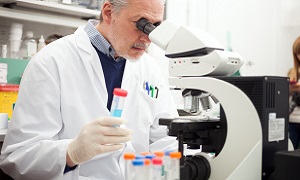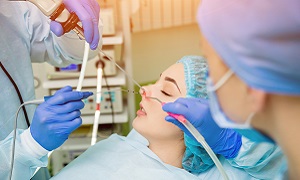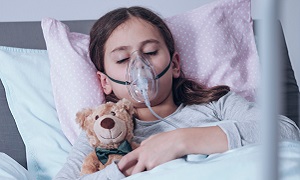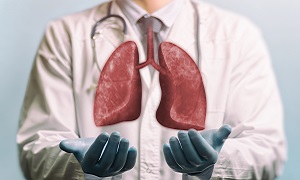Cystic Fibrosis
Cystic fibrosis is a hereditary disease that causes severe damage to the digestive system, lungs, and the other organs of the body. It affects sweat, mucus, and digestive juices producing cells. Normally slippery and thin, these fluids turn sticky and thick in people suffering from cystic fibrosis because of a defective gene. These fluids clog the ducts, tubes, and the passageways mainly in lungs and the pancreas, instead of their lubricating action. The condition progresses with the passage of time and requires you to take care of your health.
Causes of Cystic Fibrosis
Symptoms of Cystic Fibrosis
The signs and symptoms of the disease vary according to the severity of the condition. While some people may not experience any symptoms of the disease until teenage or adulthood, some others may experience the symptoms from childhood itself. People diagnosed with the condition in adulthood have atypical symptoms like infertility, bouts of pancreatitis (inflamed pancreas), and recurring pneumonia. They have a higher than usual level of salt in their sweat. Most of the symptoms of the disease affect the digestive and the respiratory system.
Digestive symptoms : The thick mucus blocks the tubes carrying the digestive enzymes from the pancreas to the small intestine. Your intestine cannot completely absorb the nutrients from the food you eat in the absence of these digestive enzymes. This causes greasy, foul-smelling stools, intestinal blockage, poor weight gain, chronic or severe constipation, and poor growth.
Respiratory symptoms : The sticky, thick mucus due to cystic fibrosis chokes the tubes that carry air from and to your lungs. The signs and symptoms caused because of this are:
- Exercise intolerance
- Stuffy nose
- Persistent cough producing thick mucus or sputum
- Repeated lung infections
- Recurrent sinusitis
- Wheezing
- Inflamed nasal passages
Diagnosis of Cystic Fibrosis
Your doctor will carry out a physical examination, conduct various tests, and review your symptoms for the diagnosis of cystic fibrosis.
Screening tests for newborns
The doctors in many places conduct screening tests to diagnose cystic fibrosis in newborns. Due to early diagnosis the treatment can be started instantly. In the blood sample, under the screening test, the doctors check for higher than normal levels of a chemical IRT (immunoreactive trypsinogen), released from pancreas. However, the levels of the chemical may be high in babies with premature birth or stressful delivery. This gives rise to the need for other tests to diagnose the presence of cystic fibrosis.
The doctors may also conduct the sweat test when the infant turns two years old to evaluate cystic fibrosis. He or she will apply a sweat-producing chemical on a small area of the skin. Next, the doctor will collect the sweat to test it and check for the saltiness. The doctors might also ask for genetic tests that detect specific defects on the gene causing cystic fibrosis.
Screening tests for adults
Treatment options for Cystic Fibrosis
Although there is no perfect cure for this disease, but treatment helps to relieve the symptoms and reduce the complications. Early diagnosis with regular monitoring slows down the progression of the disease and improves the quality of life.
Medications
Your doctor will prescribe you the medications that target gene mutations and treat the one causing cystic fibrosis. He or she will also ask you to take antibiotics to prevent and/or treat lung infections. Apart from these, other medications may be:
- Bronchodilators (inhaled medications) to keep the air passages open by relaxing the muscles surrounding the bronchial tubes.
- Anti-inflammatory medications to reduce the swelling in the airways to your lungs.
- Stool softeners that prevent bowel obstruction and constipation.
- Mucus thinning drugs like hypertonic saline that help to improve lung functions.
- Specific drugs for liver disease or diabetes
- Oral pancreatic enzymes that help in the absorption of the nutrients by your digestive tract.
- Acid-reducing medications for the proper functioning of pancreatic enzymes.
Gene-targeting medications
Your doctor may recommend cystic fibrosis transmembrane conductance regulator (CTFR) modulators if you have the gene mutations. The medication improves the functioning of the faulty CFTR protein. It reduces the amount of salt in sweat and improves lung function. Your doctor may conduct eye exams and liver function tests before prescribing these drugs. Regular follow-ups help in the monitoring of the disease while you take these medications.
Airway clearance technique
Pulmonary rehabilitation
Surgery and other treatments
The various surgical procedures for cystic fibrosis are:
Nasal and sinus surgery
Oxygen therapy
Feeding tube
Noninvasive ventilation
Bowel surgery
Liver transplant
For the severe conditions of the disease, liver transplant is the right option.









